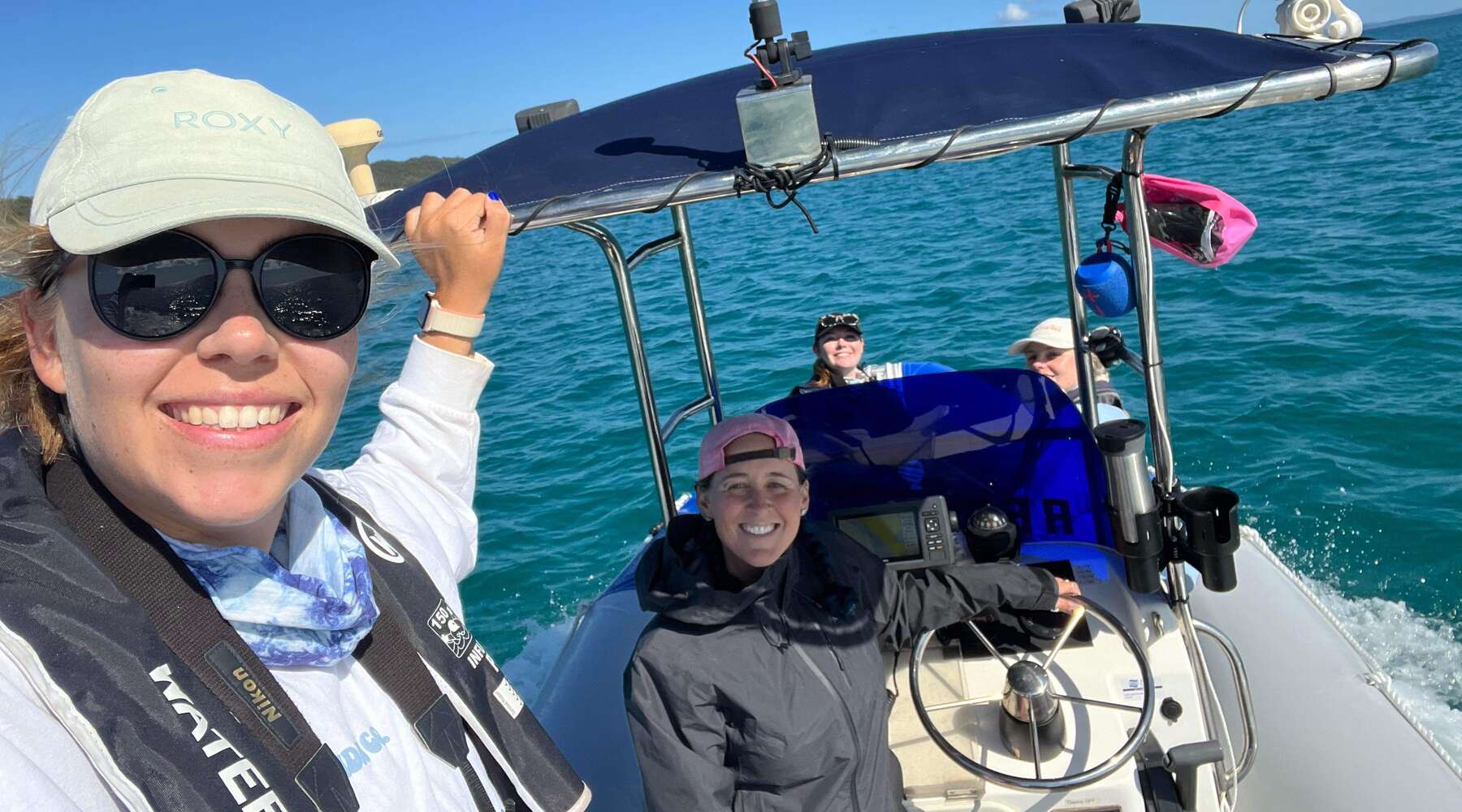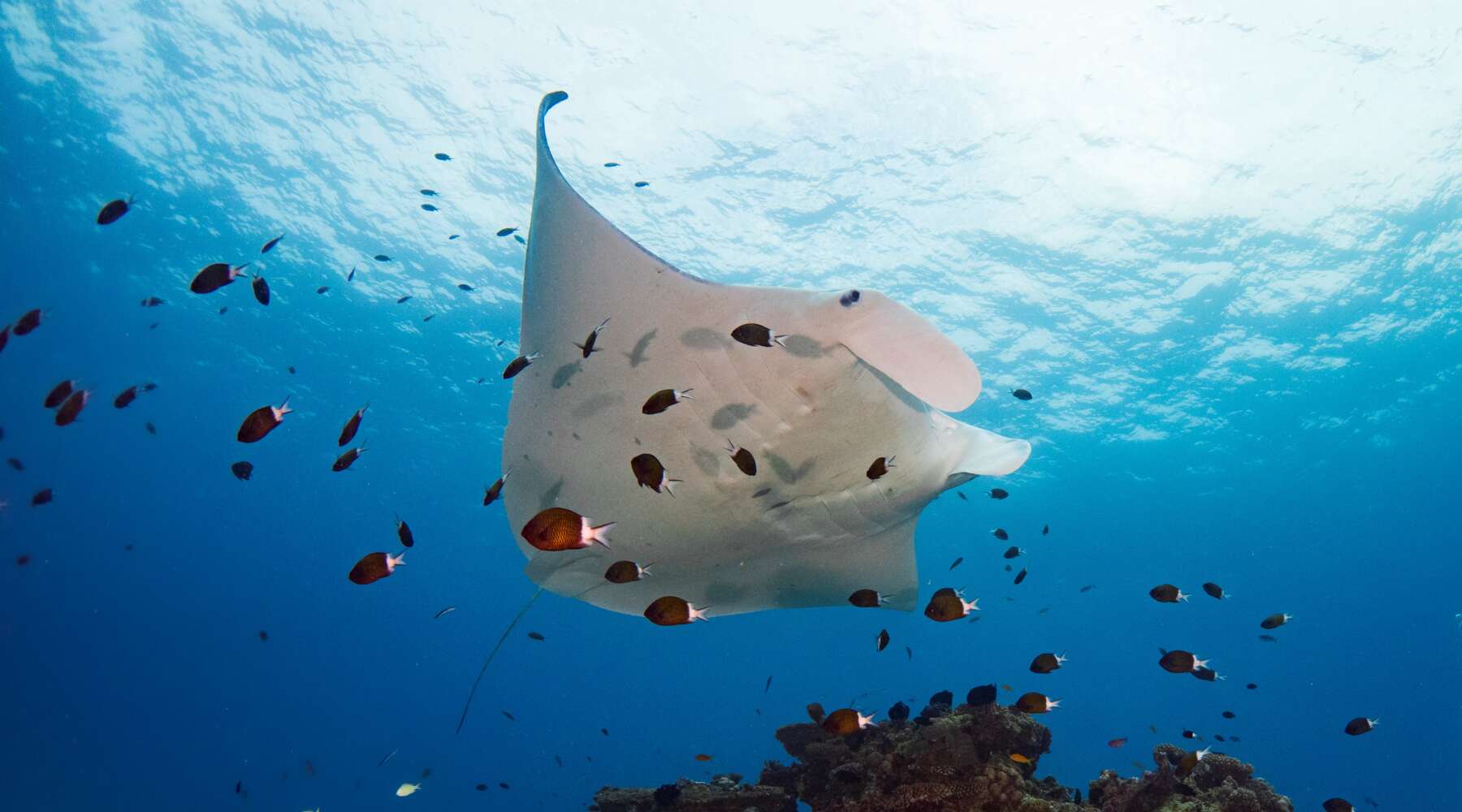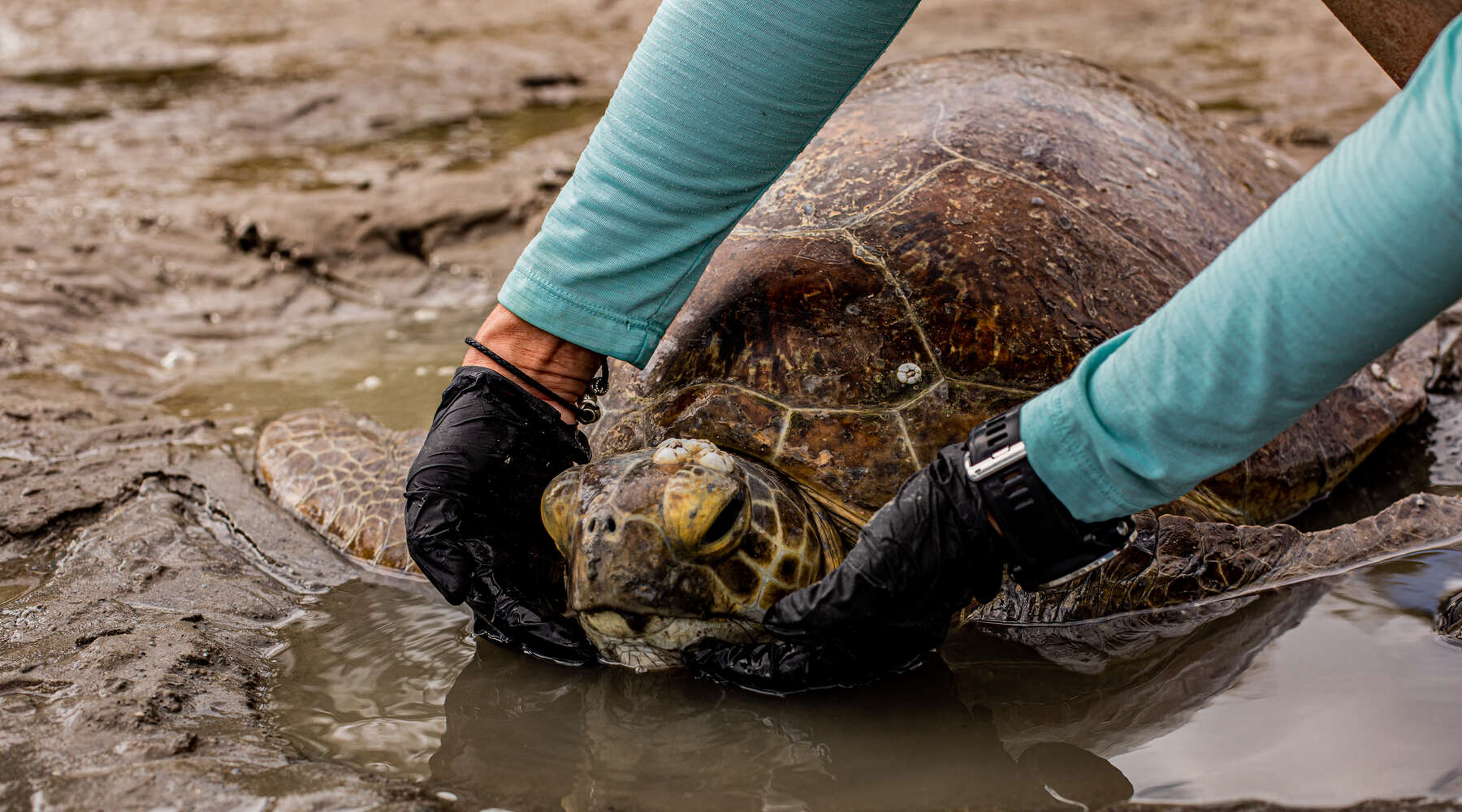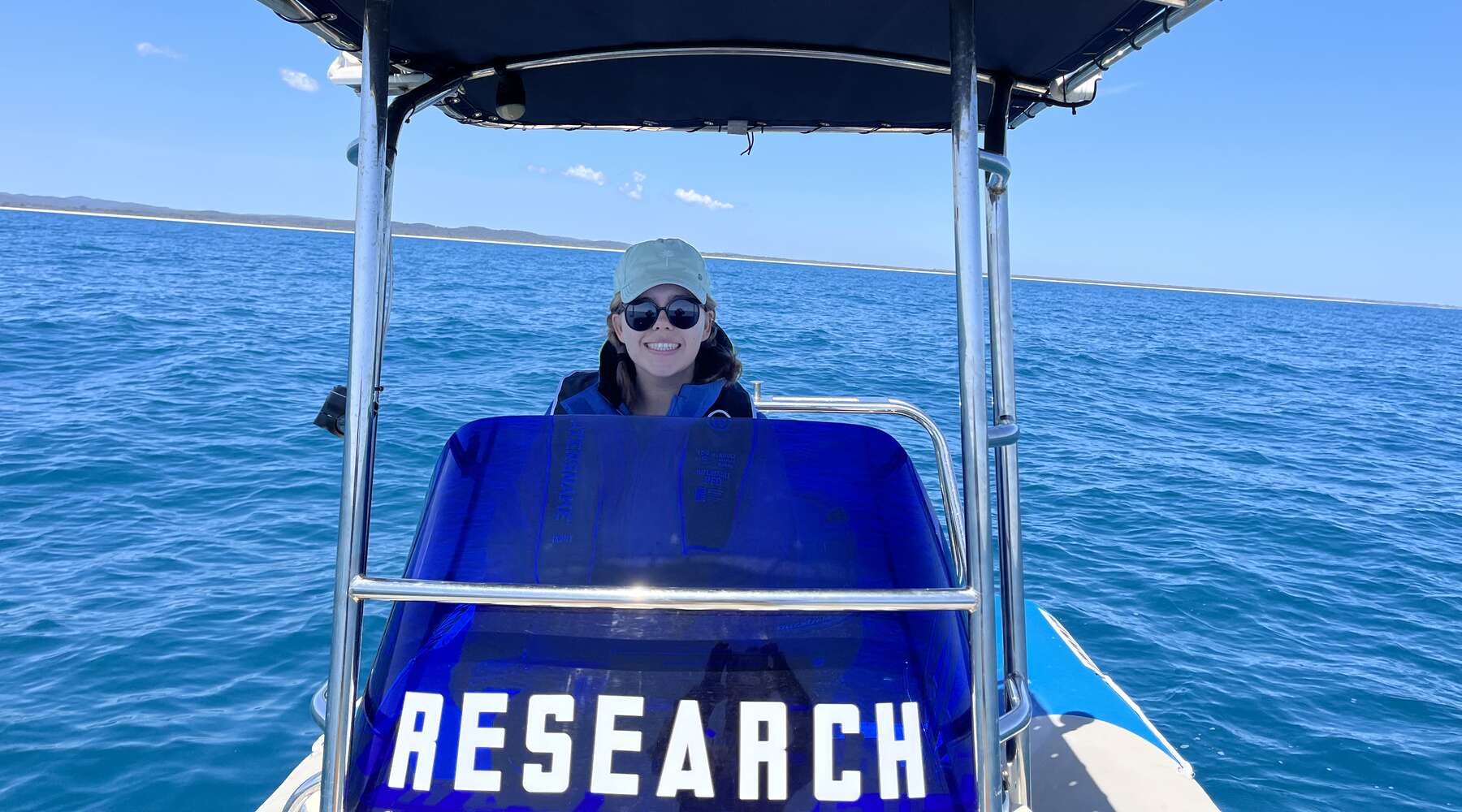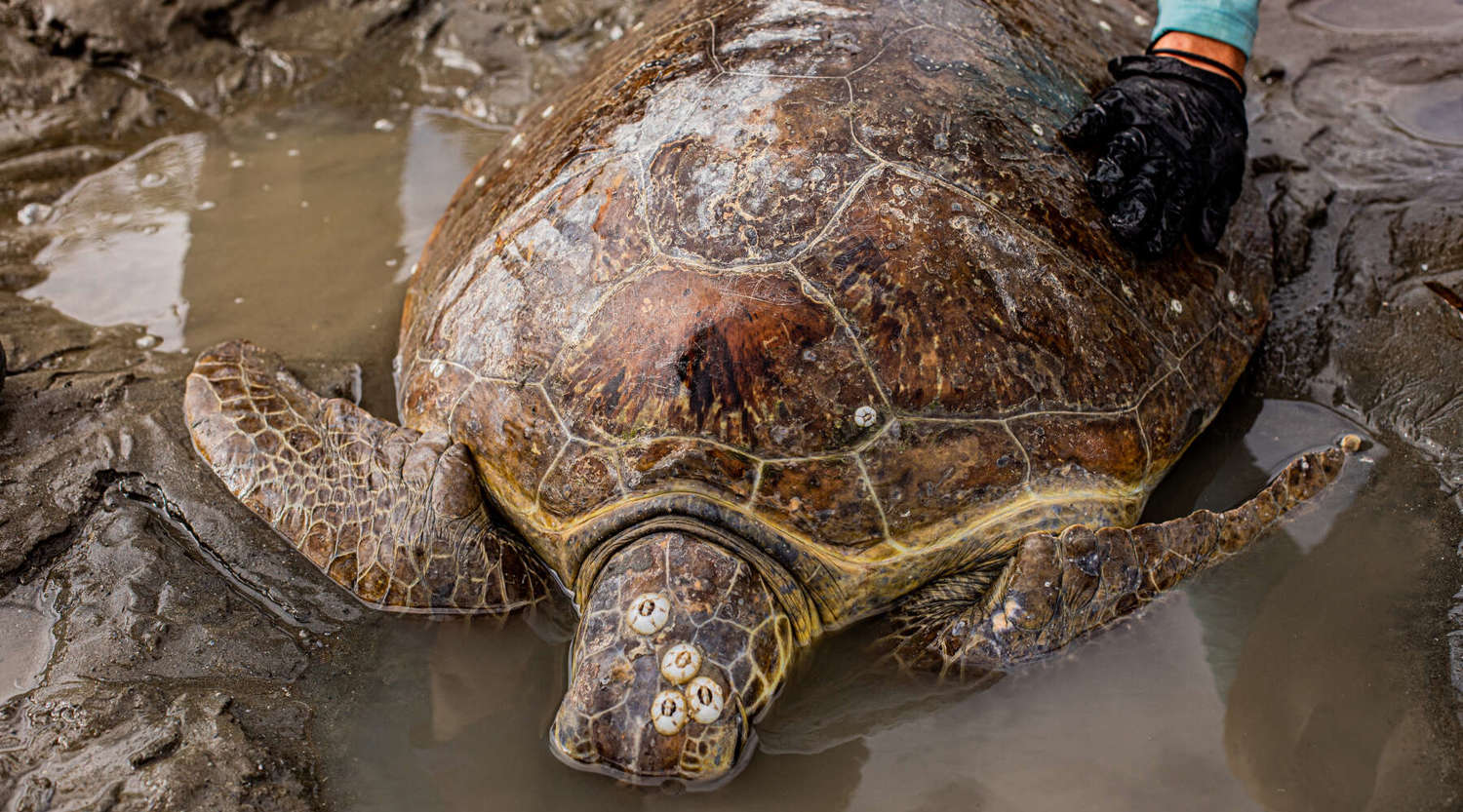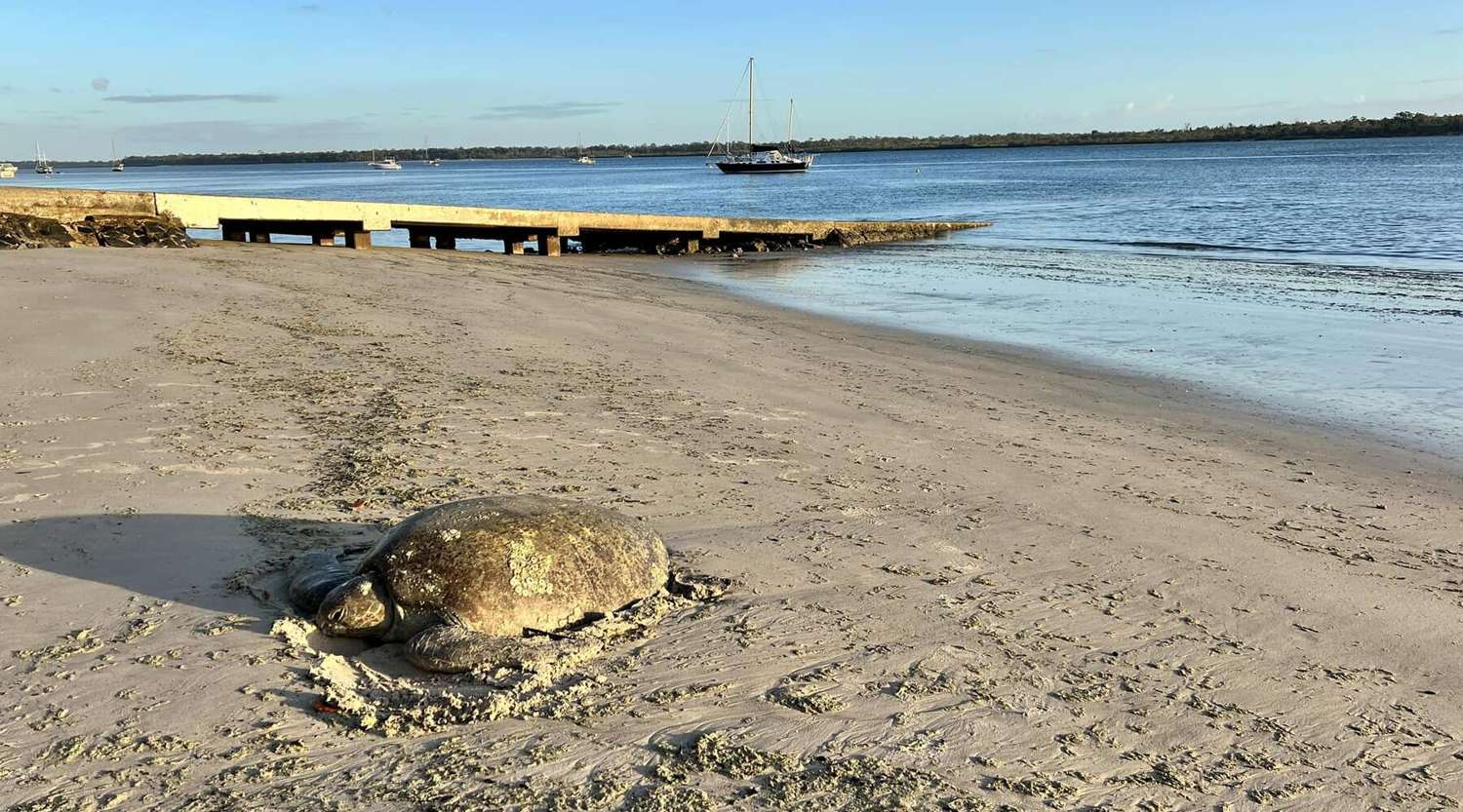From majestic manta rays to elusive dugongs and sharks that walk, UniSC researchers based at its Fraser Coast campus are providing new insights to help protect at-risk marine life.
Associate Professor Kathy Townsend says this includes PhD candidates from across the world who have moved to the region to join more than 15 UniSC research projects seeking to better understand and protect the world’s keystone species.
“On the Fraser Coast, we are conducting much-needed research into what is a globally diverse and ecologically significant natural environment, creating local research with international impact,” Dr Townsend said.
“Further afield, researchers based at our local campus are involved a range of studies in other key nature zones, such as the Galapagos Islands, the Maldives and Papua New Guinea.
“UniSC’s work to better understand and improve the survival rates of marine turtles in the Fraser Coast region is a prime example of our research focus.”
Six of the world’s seven species of marine turtles – all listed as vulnerable or endangered – nest or reside in the Fraser Coast region and are ecologically and genetically linked to other parts of Australia and the wider Pacific region.
A new UniSC study is concentrating on the direct connection between sea turtle and dugong health and habitat health in the Great Sandy Marine Park.
Noemie Blais, a marine scientist who moved to the Fraser Coast from Canada to complete her doctorate at UniSC, is investigating if changes in the environment could be related to increased cases of deaths, strandings, wasting and disease in sea turtles.
“For example, one of the causes of strandings and deaths could be diet related,” she said.
“Many turtles aren’t meeting their nutritional needs as large amounts of seagrass beds as the main food source for turtles and dugongs – have been smothered by sediment from heavy rain and flooding from extreme weather events over the previous three years,” she said.
“With so little seagrass around, there have been reports of turtles going into mangrove areas in search of food, which is an item that they usually eat sparingly and is not healthy in larger amounts.”
UniSC Deputy Vice-Chancellor (Research and Innovation) Professor Ross Young said UniSC research across the globe was focused on practical outcomes to improve animal health and sustainability.
“Through our research we are generating important solutions to try to save endangered species, such as developing a vaccine to protect Australia’s iconic koala from the shocking ravages of animal chlamydia,” he said.
“Another example is our work to lead the establishment of a dedicated marine turtle rehabilitation and research centre in Hervey Bay, with support from federal, state and local governments, to ensure that the region’s turtles have the best chance of survival.”
Professor Young said UniSC was ranked among the best universities in the world for the impact of its research in sustainability goals for life under water and life on land.
“The world is facing a complex array of challenges, in particular a changing climate, and understanding these impacts and how they interconnect will be the key to creating a healthier planet.”
Media enquiries: Please contact the Media Team media@usc.edu.au


